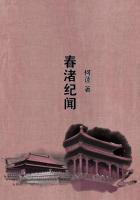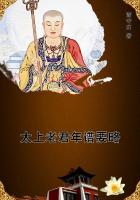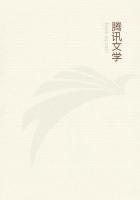The wedding was dismal, as became a festival under such outrageous auspices. Morton, Maitland, and some base flatterers of Bothwell alone were present at it. The French ambassador, although he was a creature of the House of Guise, to which the queen belonged, refused to attend it.
Mary's delusion was short-lived: scarcely was she in Bothwell's power than she saw what a master she had given herself. Gross, unfeeling, and violent, he seemed chosen by Providence to avenge the faults of which he had been the instigator or the accomplice. Soon his fits of passion reached such a point, that one day, no longer able to endure them, Mary seized a dagger from Erskine, who was present with Melville at one of these scenes, and would have struck herself, saying that she would rather die than continue living unhappily as she did; yet, inexplicable as it seems, in spite of these miseries, renewed without ceasing, Mary, forgetting that she was wife and queen, tender and submissive as a child, was always the first to be reconciled with Bothwell.
Nevertheless, these public scenes gave a pretext to the nobles, who only sought an opportunity for an outbreak. The Earl of Mar, the young prince's tutor, Argyll, Athol, Glencairn, Lindley, Boyd, and even Morton and Maitland themselves, those eternal accomplices of Bothwell, rose, they said, to avenge the death of the king, and to draw the son from hands which had killed the father and which were keeping the mother captive. As to Murray, he had kept completely in the background during all the last events; he was in the county of Fife when the king was assassinated, and three days before the trial of Bothwell he had asked and obtained from his sister permission to take a journey on the Continent.
The insurrection took place in such a prompt and instantaneous manner, that the Confederate lords, whose plan was to surprise and seize both Mary and Bothwell, thought they would succeed at the first attempt.
The king and queen were at table with Lord Borthwick, who was entertaining them, when suddenly it was announced that a large body of armed men was surrounding the castle: Bothwell and Mary suspected that they were aimed at, and as they had no means of resistance, Bothwell dressed himself as a squire, Mary as a page, and both immediately taking horse, escaped by one door just as the Confederates were coming in by the other. The fugitives withdrew to Dunbar.
There they called together all Bothwell's friends, and made them sign a kind of treaty by which they undertook to defend the queen and her husband. In the midst of all this, Murray arrived from France, and Bothwell offered the document to him as to the others; but Murray refused to put his signature to it, saying that it was insulting him to think he need be bound by a written agreement when it was a question of defending his sister and his queen. This refusal having led to an altercation between him and Bothwell, Murray, true to his system of neutrality, withdrew into his earldom, and let affairs follow without him the fatal decline they had taken.
In the meantime the Confederates, after having failed at Borthwick, not feeling strong enough to attack Bothwell at Dunbar, marched upon Edinburgh, where they had an understanding with a man of whom Bothwell thought himself sure. This man was James Balfour, governor of the citadel, the same who had presided over the preparation of the mine which had blown up Darnley, and whom Bothwell had, met on entering the garden at Kirk of Field. Not only did Balfour deliver Edinburgh Castle into the hands of the Confederates, but he also gave them a little silver coffer of which the cipher, an "F" crowned, showed that it had belonged to Francis II; and in fact it was a gift from her first husband, which the queen had presented to Bothwell.
Balfour stated that this coffer contained precious papers, which in the present circumstances might be of great use to Mary's enemies.
The Confederate lords opened it, and found inside the three genuine or spurious letters that we have quoted, the marriage contract of Mary and Bothwell, and twelve poems in the queen's handwriting. As Balfour had said, therein lay, for her enemies, a rich and precious find, which was worth more than a victory; for a victory would yield them only the queen's life, while Balfour's treachery yielded them her honour.















